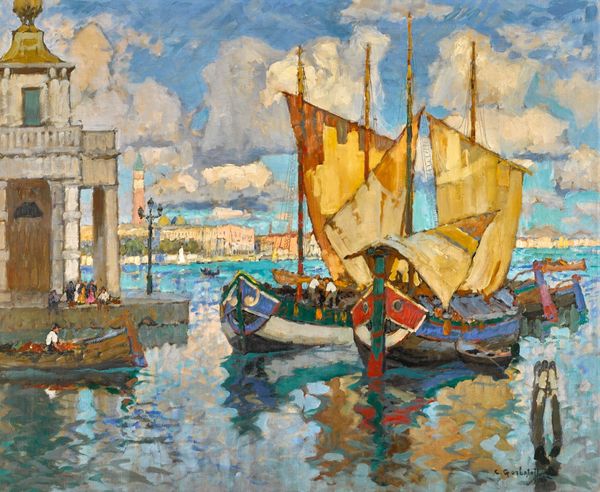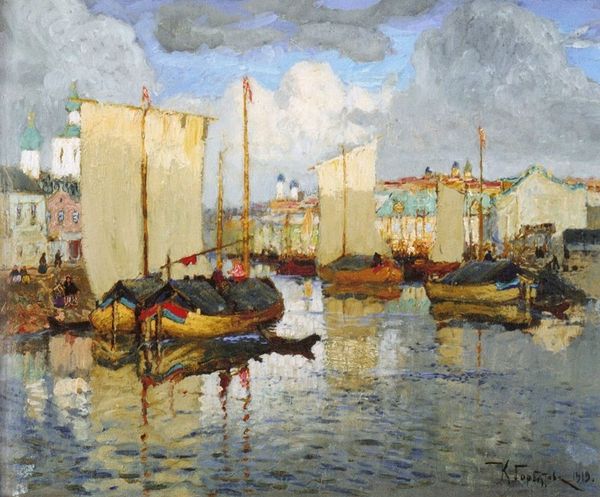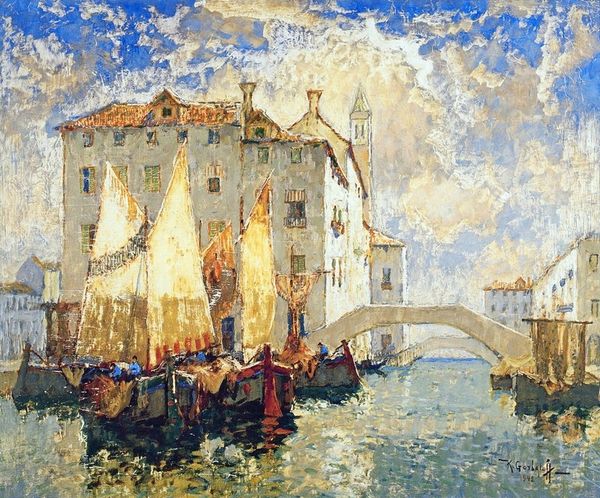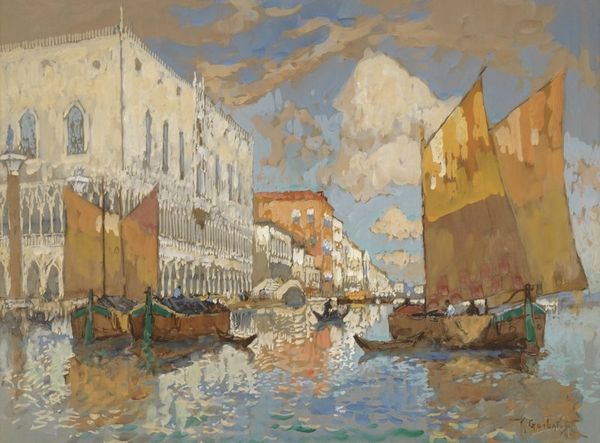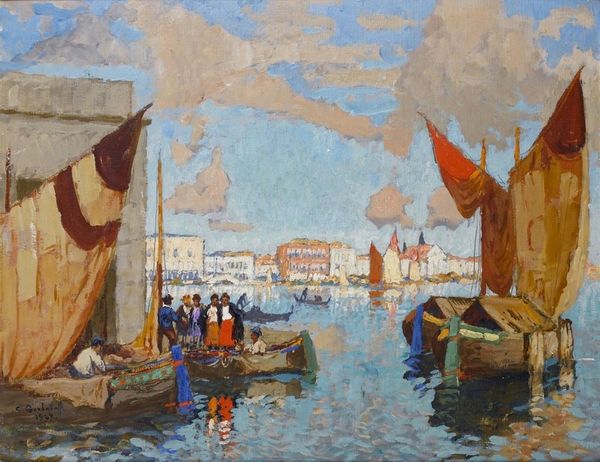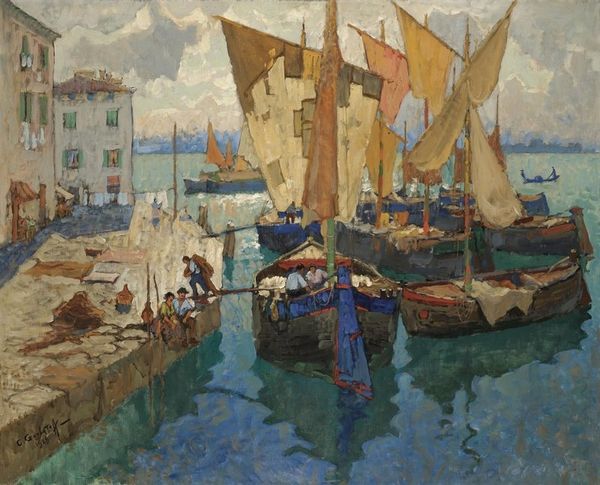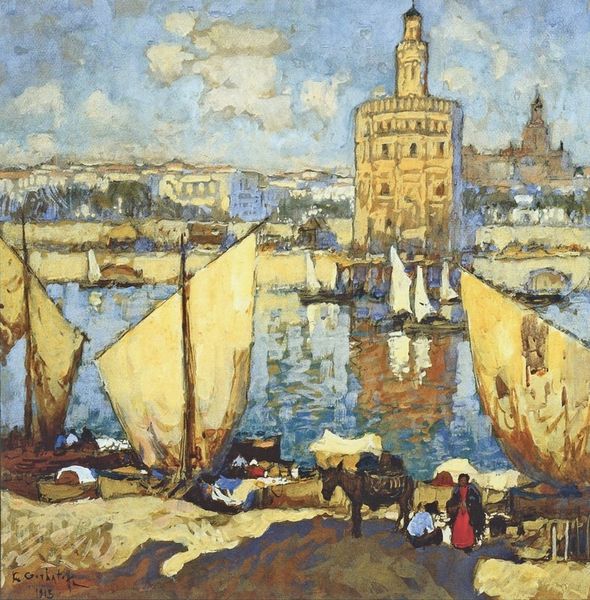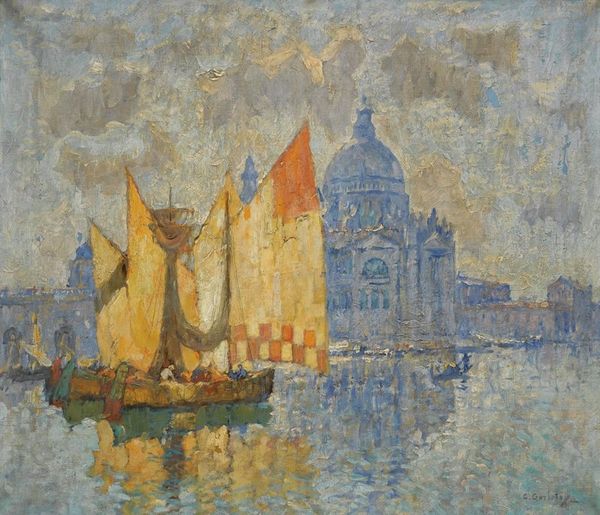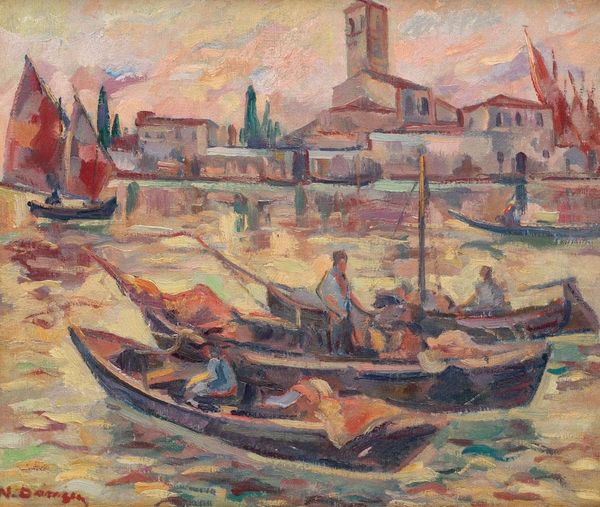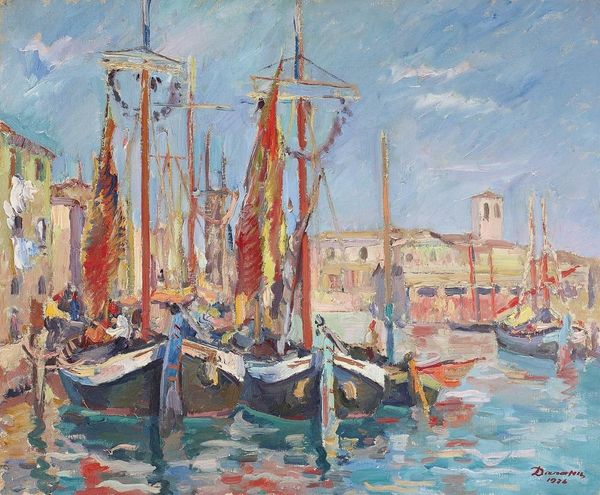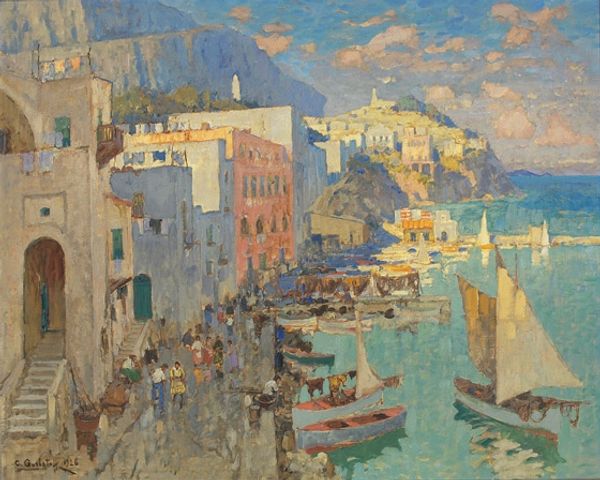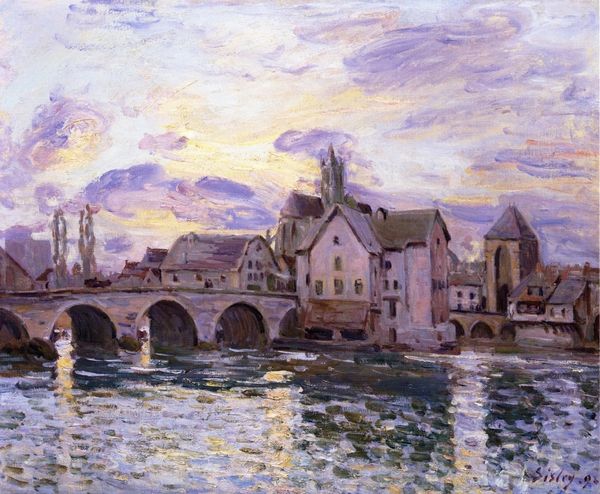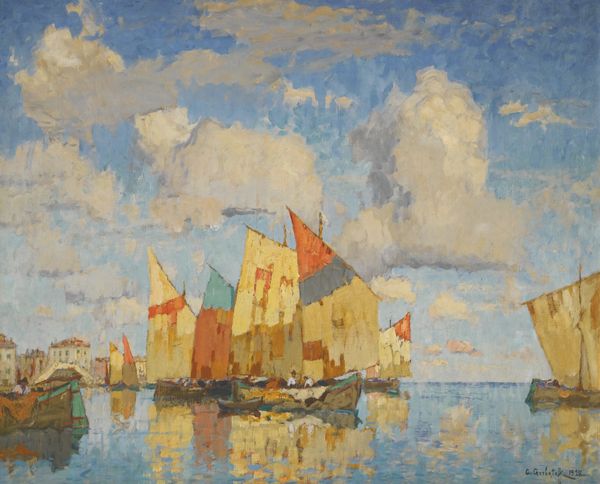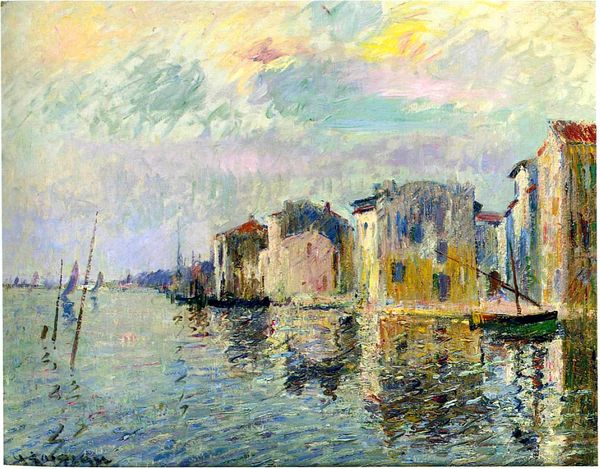
painting, oil-paint
#
painting
#
impressionism
#
impressionist painting style
#
oil-paint
#
landscape
#
impressionist landscape
#
cityscape
#
genre-painting
#
realism
Copyright: Public domain
Curator: Before us hangs Konstantin Gorbatov’s oil on canvas, titled "Fishermen in Chioggia". It captures a canal scene bustling with activity. What strikes you upon first viewing this work? Editor: It evokes a sense of sun-drenched tranquility, but the tilted perspective and the visible brushstrokes hint at an underlying dynamism, a world of labor. It is not just idyllic, is it? Curator: Indeed, Chioggia itself carries the weight of history as a city deeply intertwined with fishing, both as a livelihood and as a cultural identifier. Those fishing boats with their colorful sails are known as "bragozzi", traditional to the Venetian lagoon. Editor: Those bragozzi remind me of an emblem. Aren’t sails themselves, historically, loaded with symbolic value, signaling trade routes, empires, and the exploitation of resources? We need to think about whose labor is made visible here. Are we celebrating work, or obscuring it? Curator: Symbolically, water often signifies the unconscious. The reflections, the mirroring of buildings on the canal surface, imply hidden depths beneath the everyday reality of the fishing industry. Editor: Water can be sustenance, but also a barrier, especially regarding immigration and class struggles. Thinking about how tourism relies on romanticized versions of fishing towns—what stories aren’t we hearing about the working class? I’m intrigued by Gorbatov's perspective. Curator: Well, Gorbatov himself was no stranger to political upheaval, wasn't he? He fled Russia after the Revolution, later facing persecution under the Nazis. There’s a subtle commentary on societal flux and endurance, visible within those brushstrokes, the fleeting, sunlit moments of an ancient profession carrying on. Editor: So even a painting seemingly about quaint tradition can hold multiple layers of meaning, mirroring larger historical and political contexts? It's about questioning our assumptions. Curator: Absolutely, the lasting power of symbols rests in their layered meanings, resonating across different contexts and histories. Editor: A good reminder to look beyond pretty sailboats! It’s always about unpacking the complexities, right?
Comments
No comments
Be the first to comment and join the conversation on the ultimate creative platform.
